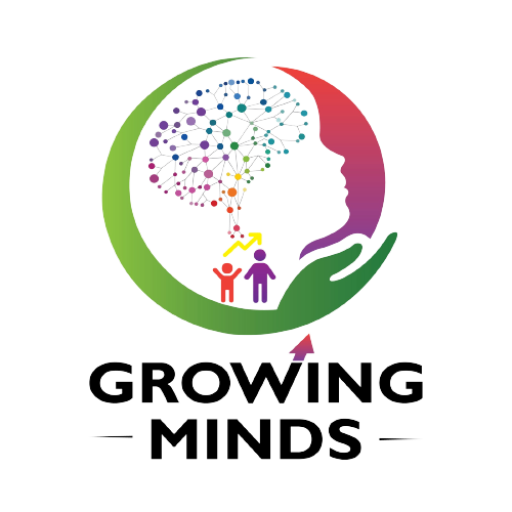
Thriving Through Thanksgiving with ADHD: Coping Strategies
Celebrating Thanksgiving with ADHD feels a little less festive. This holiday, with its emphasis on travel, large gatherings, elaborate meals, and disrupted routines, can feel less like a joyful celebration and more like a significant source of stress for adults and children with Attention-Deficit/Hyperactivity Disorder (ADHD). The shift from the usual structure, coupled with increased sensory input and high expectations, can quickly lead to overwhelm, irritability, and executive functioning meltdowns.
However, you can navigate the extended Thanksgiving weekend successfully. By implementing practical strategies that prioritize structure and self-care, you can minimize stress and truly enjoy the season of gratitude.
5 Ways to Navigate Thanksgiving with ADHD
Here are five focused strategies designed to help individuals with ADHD maintain calm and consistency amidst the holiday flurry:
1. Build a Visual, Segmented Schedule for the Long Weekend
The unpredictable nature of holiday time—with shifted meal times, unexpected guests, and travel—is an enemy to the ADHD brain, which thrives on predictability and routine. Instead of just having a vague plan, create a highly visible, broken-down schedule.
- The Power of Visuals: Use a large whiteboard or a bright calendar app where you can visually track events. Write down specific times for waking up, eating, and even quiet time.
- Segment Your Day: Don’t just list “Thanksgiving Dinner.” Break it into smaller, timed chunks: “11:00 AM: Start side dishes,” “1:00 PM: Dress and get ready,” “2:00 PM: Guests arrive.” This reduces the feeling of an overwhelming, continuous task.
- Include Buffer Time: Add 15-30 minutes of “cushion” between major activities. This accounts for distractions and gives your brain a moment to transition, preventing the stress of feeling rushed.
2. Simplify the Feast and Focus on “Done,” Not “Perfect”
The pressure to host a flawless holiday meal can be paralyzing. Tasks involving detailed planning, sequencing, and sustained attention, like complex cooking, are often challenging for those with ADHD.
- Host a Hybrid Meal (The Potluck Shortcut): If hosting, assign dishes to others or order pre-made items from a local deli or grocery store. Outsourcing a few key dishes (like pie or stuffing) instantly lowers your cognitive load.
- Limit New Recipes: Stick to familiar, less labor-intensive recipes. The holidays are not the time to experiment with that seven-step culinary masterpiece.
- Prep Ahead: Two days before, make a visual checklist for all non-perishable tasks: setting the table, defrosting the turkey, organizing drinks. Check off each item as it’s completed to leverage the rewarding feeling of accomplishment.
3. Establish and Enforce a “Sanctuary Space” to Enjoy This Thanksgiving With ADHD
Overstimulation—the noise of a crowded room, strong smells, multiple conversations—is a common trigger for emotional dysregulation in ADHD. You need a planned escape route.
- Designate a Quiet Zone: Before guests arrive, select a room (a bedroom, home office, or even a quiet corner) that is off-limits to socializing. This is your “Sanctuary Space.”
- Schedule Alone Time: Inform family or guests that you or your child need 15-30 minutes of downtime at specific points in the day. Block this time in the schedule (Strategy 1).
- Use Sensory Tools: Retreat to your sanctuary with noise-canceling headphones, a calming book, or a weighted blanket to help your nervous system regulate before re-engaging.
4. Maintain Your Core Daily Routines Unchanged
While the holiday schedule is disrupted, your core self-care routines are essential anchors. Inconsistency in sleep, food, and medication can significantly worsen ADHD symptoms.
- Medication and Sleep are Non-Negotiable: Take your medication at the exact same time you usually do, even if you’re staying up late or sleeping in. Similarly, aim for consistent wake-up and bedtime hours.
- Move Your Body: Physical activity helps regulate dopamine and relieve pent-up energy. A brisk walk before the big meal or a quick session of yoga or stretching can significantly improve focus and mood.
- Fuel with Protein: Make sure to eat regular, protein-rich meals and snacks (especially on a heavy food day like Thanksgiving). Low blood sugar can mimic and exacerbate inattention and irritability.
5. Practice Mindful Goal Setting and Acceptance
The best way to enjoy the thanksgiving with ADHD is often by lowering the bar on expectations. Be realistic about what you can achieve while managing your ADHD.
- Focus on Connection Over Perfection: Your goal should be to enjoy the company and feel a sense of peace, not to host the perfect meal or manage every detail flawlessly.
- The “One Thing” Rule: If you are feeling overwhelmed, mentally select one single goal for the day (e.g., “I will spend 30 uninterrupted minutes connecting with my grandmother,” or “I will successfully bake the rolls”). Focus all your effort there and consider the day a success, regardless of the other small bumps.
- Practice Self-Compassion: If you forget an item, run late, or lose your temper, pause. Remind yourself that you have a complex neurological condition, and you are doing your best. Forgive yourself quickly and move on.
Need Extra Support This Season? Connect with Growing Minds.
If you find that holiday stress is overwhelming your existing coping mechanisms, or if you’re seeking specialized support for managing ADHD year-round, our experts are here for you.
WE OFFER A FREE 30-MINUTE MENTAL WELLNESS CHECK-IN
Take a moment for yourself. Fill out this form today to claim a complimentary 30-minute session with a licensed professional at Growing Minds Mental Health Services to assess your stress levels and discuss personalized coping strategies for the holidays.
Contact us today to schedule your appointment and start your journey toward a calmer, more focused holiday season.
This article is for informational purposes only and is not a substitute for professional medical advice, diagnosis, or treatment. Always seek the advice of a qualified healthcare provider with any questions you may have regarding a medical condition.




